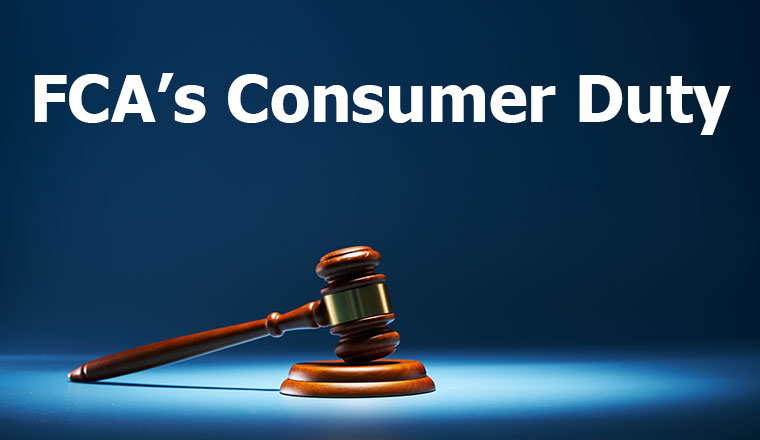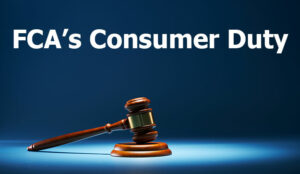In today’s rapidly evolving financial landscape, Consumer Duty is not merely a regulatory requirement—it’s a transformative shift that places consumer outcomes at the heart of business operations. I’m Fred, an FCA Compliance Consultant with over a decade of experience in banking and finance, dedicated to helping firms embed robust compliance frameworks. In this blog, we delve into the FCA’s guidance on Consumer Duty, offering insights on what it means for your firm and how you can implement a consumer-centric approach to drive lasting value.
The Strategic Importance of Consumer Duty
Consumer Duty represents a fundamental shift in how financial services firms interact with their customers. The FCA’s recent guidance urges firms to go beyond traditional regulatory checklists by embedding a culture that delivers good outcomes for consumers. As an FCA Compliance Consultant with a robust background in banking and finance, I understand that implementing Consumer Duty is not only about compliance—it’s about building trust and driving sustainable success in an increasingly competitive market.
Understanding the FCA’s Consumer Duty Requirements
The FCA’s guidance on Consumer Duty is designed to ensure that firms consistently act in the best interests of their customers. This new standard requires firms to:
- Adopt a holistic, consumer-focused approach: Firms must ensure that every aspect of their operations, from product design to customer communication, is aligned with the goal of achieving optimal consumer outcomes.
- Implement robust governance frameworks: The guidance emphasises the importance of accountability at all levels, ensuring that senior management is engaged in overseeing consumer outcomes.
For more detailed information on the FCA’s expectations, please refer to the official FCA guidance on Consumer Duty cite.
Key Elements of Consumer Duty for Firms
Consumer-Centric Culture and Governance
At its core, Consumer Duty is about creating a culture that puts consumers first. This involves:
- Establishing clear internal accountability for consumer outcomes.
- Aligning incentive structures and performance metrics with the delivery of fair treatment to customers.
Product Design, Distribution, and Governance
Firms must ensure that every product or service is designed with the consumer in mind:
- Design: Products should be tailored to meet the needs of the target audience, avoiding unnecessary complexity.
- Distribution: Sales channels and marketing practices must be scrutinised to prevent mis-selling and ensure that only suitable products reach consumers.
- Governance: Regular reviews and risk assessments are essential to ensure that products continue to meet consumer expectations over time.
Clear Communication and Transparency
The FCA’s guidance underlines the need for clear, concise, and transparent communication:
- Firms should provide accessible information that enables consumers to make informed decisions.
- This includes eliminating jargon and ensuring that disclosures are straightforward and honest.
Ongoing Monitoring and Review
A successful Consumer Duty framework is dynamic:
- Continuous monitoring of consumer outcomes is vital to identify areas for improvement.
- Feedback mechanisms, data analytics, and periodic reviews help firms adjust their strategies in real time, ensuring that consumer interests remain at the forefront.
Implementing Consumer Duty in Your Organisation
To effectively integrate Consumer Duty into your firm’s operations, consider the following steps:
- Assess Current Practices: Conduct a comprehensive review of your product design, customer communication, and governance structures.
- Embed a Consumer-Centric Culture: Train your team on the principles of Consumer Duty and ensure that performance metrics align with consumer outcomes.
- Revise Product Governance: Update your product approval processes to include thorough consumer outcome assessments.
- Enhance Communication: Simplify your disclosures and ensure that all consumer-facing materials are clear and accessible.
- Monitor and Adapt: Implement robust systems for continuous monitoring and regular review, allowing for agile responses to emerging consumer needs.
What Next?
Embracing Consumer Duty is a strategic imperative that not only ensures regulatory compliance but also fosters a culture of trust and accountability. By aligning your firm’s practices with the FCA’s guidance, you can create a consumer-centric business model that drives sustainable growth and enhances your reputation.
For tailored advice on implementing Consumer Duty and optimizing your compliance framework, contact FYM Compliance Limited today. Let us help you navigate these regulatory changes and build a business that truly puts consumers first.




